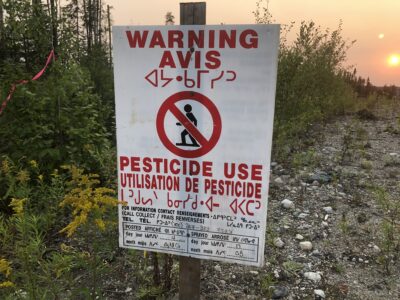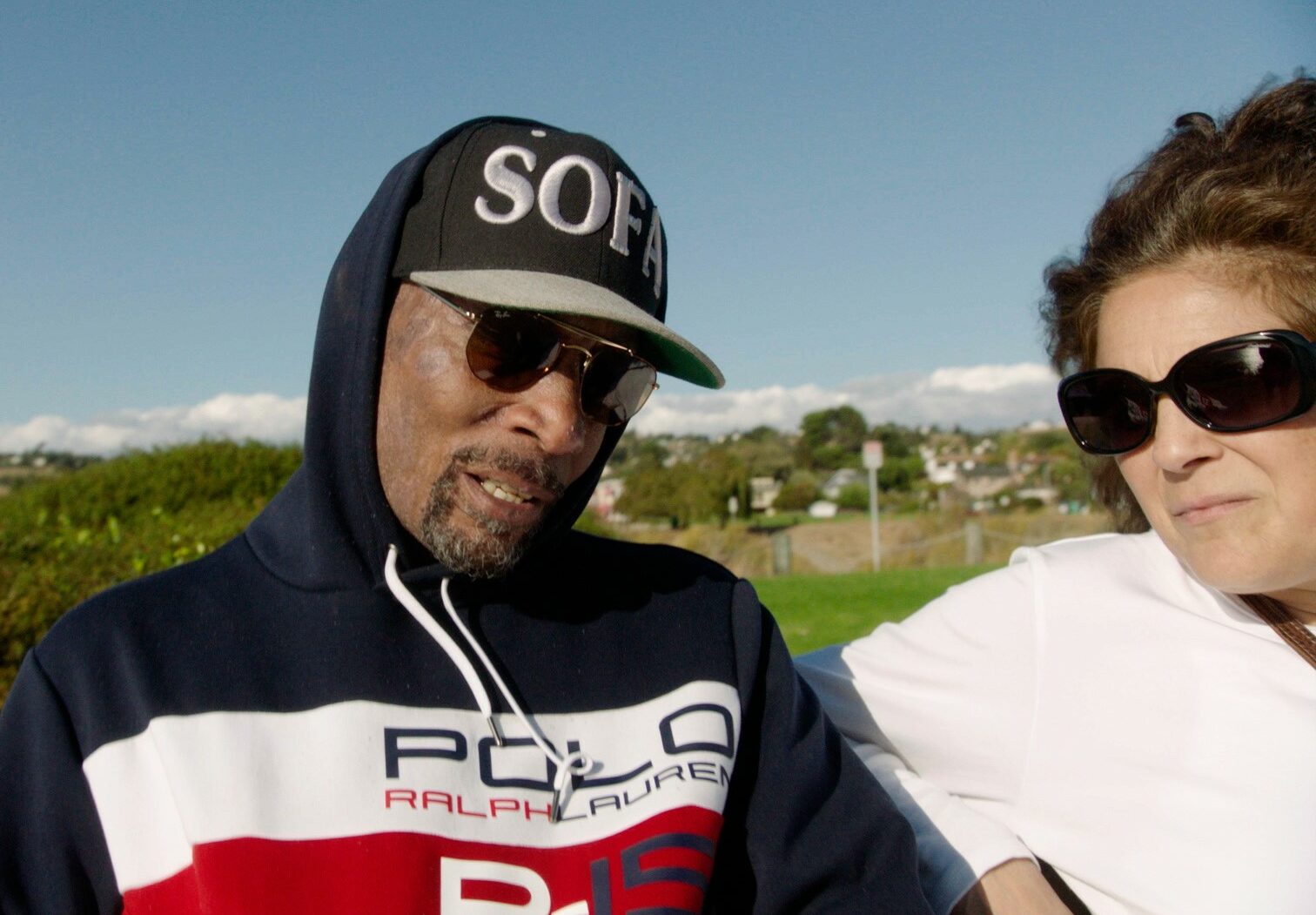If you’re struggling with anxiety, constantly distressed by how fucked up our world is, be warned that Jennifer Baichwal’s riveting documentary Into The Weeds will evoke tension, anger, and have you questioning everything around you. But watching the determined individuals in the film fight a multi-billion dollar corporation, in this case chemical herbicide giant Monsanto, is encouraging and invigorating.
The award-winning Canadian documentarian has made her life’s work about providing a bigger platform to tell important stories. In Manufactured Landscapes (2006) she partnered with renowned Canadian photographer Edward Burtynsky to show the impact that factories, quarries, and mines have on the earth. In Watermark (2013) she once again partnered with Burtynsky to explore our relationship with water—how we are drawn to it, what we learn from it, how we use it and the consequences of that use. Anthropocene (2018) builds on what Baichwal covered in both Manufactured Landscapes and Watermark, and is described as “a cinematic meditation on humanity’s massive reengineering of the planet.”
In all of these documentaries, Baichwal examines corporate greed and its catastrophic consequences. Into The Weeds follows this theme, but narrows its focus on the Monsanto Company, and the devastating effects their Roundup herbicide—which has been used consistently since it was developed in the 1970s—has had on both humans and entire ecosystems.

The film follows the story of groundskeeper Dewayne “Lee” Johnson and his fight for justice against the agri-chemical giant. Although the trial of Dewayne Johnson v. Monsanto Company serves as the spine of the story, it also includes characters and their stories: among them, Johnson’s mother and wife who have witnessed his deteriorating health since his diagnosis; Saskatchewan farmer Garry Gadd; Traditional Ecological Knowledge Elder Ray Owl who is fighting to stop the aerial spraying of glyphosate (the active ingredient in Roundup) within his territory; and a host of other plaintiffs who have been harmed.
“Film has this capacity to intellectually persuade you of something, move you emotionally, and aesthetically take you into a different place. It’s a powerful medium, not just for conveying information but really giving experiential knowledge of people’s plights, while also being a catalyst for activism and justice,” said Baichwal, in an interview we conducted with her in 2021 at the Human Rights Watch Film Festival. Into The Weeds demonstrates her point well — providing Johnson, and everyone fighting Monsanto, with access to a much wider audience. When you’re up against a billion dollar company, it’s easy to be squashed, Baichwal’s Into The Weeds is a powerful weapon to fight back.

The film opened Hot Docs and is one of the big titles screening at the inaugural Blue Mountain Film Festival (June 1 – 5). After watching Into The Weeds, we immediately started sifting through items in our kitchen cupboards, reading the labels, trying to figure out which cereals and oatmeals were sprayed with Roundup weed killer. If any film persuades people to grow their own veggies or swap the supermarket for a local farm share, it’s this one. You will find yourself asking, “What’s safe to eat? Who can I trust??”
The film shares startling facts, like the fact that 56 million pounds of Glyphosate, or the toxic chemical herbicide in Roundup, is sprayed on corn crops annually. A whopping 290 pounds is used to help grow soy. But Glyphosate is also used to control weeds in forests, family campgrounds, hiking trails, school athletic fields, and playgrounds. In Into The Weeds, we hear from scientific experts who explain how harmful and toxic the herbicide is; dozens of interview subjects talk about how their Non-Hodgkin Lymphoma cancer diagnosis is directly related to exposure.

We’ve been following Baichwal’s career closely for two decades, and while Into The Weeds is an obvious progression of her work, we couldn’t help but notice the similarities it shares with Dopesick, the gut-wrenching series about the Sackler family, or the founders of Perdue Pharma, responsible for the Oxycontin overdose crisis. Dopesick may be a fictional series, but it’s based on a true story. Both Into The Weeds and Dopesick share the shocking truth about what happens when greedy corporations become so powerful that they control the governing bodies that are supposed to keep people safe.
Into The Weeds is chilling, devastating, and an absolute must-watch that will forever change the way you look at your groceries.



 Follow Us On Instagram
Follow Us On Instagram
